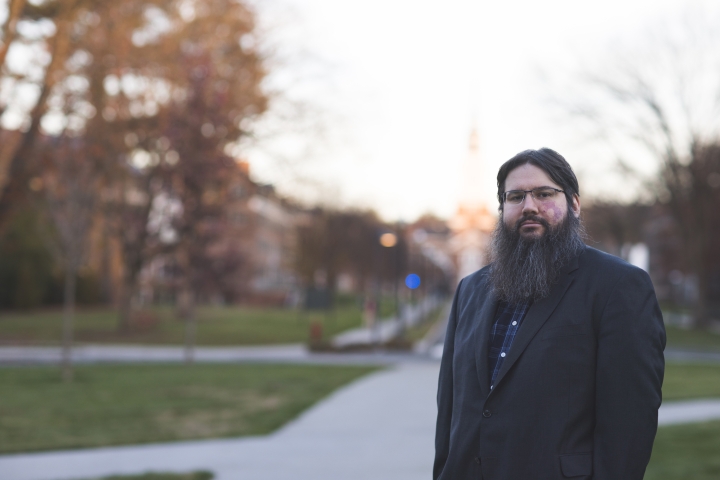Despite political chatter about a new civil war, Americans' support for partisan violence remains very low, according to a new report issued by the Polarization Research Lab.
Led by Sean Westwood, an associate professor at Dartmouth, and co-directed by political scientists at the University of Pennsylvania and Stanford University, the research group applies "science to the study of polarization and democracy."
The report, Partisan Animosity and America, marks the launch of a monthly report series—The Path to the 2024 Presidential Election—which provides an in-depth look at Americans' attitudes on key issues leading up to and following the election in November.
"While there is a common perception that partisan violence is something that is going to destroy the bedrock of U.S. democracy, our data show that this is, in fact, far from the truth," says Westwood, the report author. "Americans have a fundamentally incorrect understanding of support for partisan violence."
"Democrats think 45.5% of Republicans support partisan murder, which is 20.7 times larger than what our data show. Similarly, Republicans think 42% of Democrats support partisan murder, which is 25 times larger than reality."
"There is a large mismatch between the perceptions that Americans have of the other side and the reality of the state of American politics," says Westwood.
Based on 73,300 survey interviews on the YouGov platform over the last 15 months, including 3,500 in January, the lab tracked American support for partisan violence. The study finds that both Democrats and Republicans reject partisan violence.
Some of the other key findings include:
- Support for any type of partisan violence is low "as fewer than 4% of Americans support violent crimes like assault or arson against political opponents."
- In like manner, most Americans do not support politically-motivated murder. At 2.1%, Democrats show slightly higher levels of support for this type of partisan violence as compared to Republicans at 1.8%.
- "Support for partisan violence concentrates among young, male, wealthy, non-white, and more educated Americans," according to the report. Support for partisan violence for those under 30 is 5.8% as compared to 1.7% for those above 30, illustrating that young people support this type of violence at nearly three times the rate of the older age group. And among Republicans, MAGA Republicans support partisan violence 1.2 times more than other members of their party.
"Just because you say that you support partisan violence doesn't mean that you, yourself, are going to commit an act of violence," says Westwood.
"Any support for partisan violence in the public is troublesome and we should take note, but small levels of support doesn't mean that we are headed towards a civil war. We must remain attentive to the problem," says Westwood. "As partisan animosity continues to create divisions in our society things could very well get worse."
Public attitudes on issues often move in response to political events, so the lab will administer future surveys to track changes in Americans' attitudes leading up to November. The next report in the series is on immigration and will be issued in March.
Future reports will focus on: artificial intelligence, misinformation, and democracy; corporate political action; support for the violation of democratic norms; the politicization of the Supreme Court; the urban and rural divide in America; acceptance of democratic backsliding; the decreasing credibility of political science research on elections; and election integrity and denialism. Each report will be published the first week of each month.
Yphtach Lelkes at the Annenberg School for Communication at University of Pennsylvania, and Shanto Iyengar at Stanford University are co-directors of the Polarization Research Lab and contributed to the report on partisan violence.
